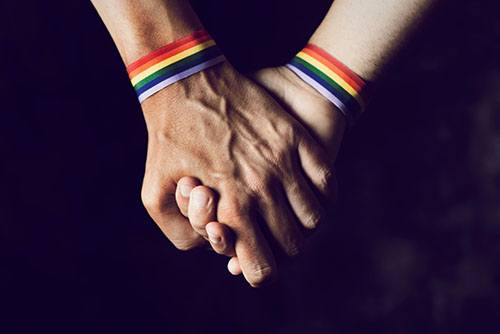December 17, 2024
 The Global Health Advocacy Incubator’s (GHAI) Data for Health (D4H) Program is excited to announce the addition of a new chapter to its CRVSID Legal and Regulatory Review Toolkit (Toolkit) focused on the unique challenges faced by those who identify as lesbian, gay, bisexual, transgender and intersex (LGBTI) when attempting to access civil registration services. Civil registration services include things like birth, death, marriage and divorce registration, services which are often shaped around traditional and binary conceptions of gender, sex, and sexual orientation.
The Global Health Advocacy Incubator’s (GHAI) Data for Health (D4H) Program is excited to announce the addition of a new chapter to its CRVSID Legal and Regulatory Review Toolkit (Toolkit) focused on the unique challenges faced by those who identify as lesbian, gay, bisexual, transgender and intersex (LGBTI) when attempting to access civil registration services. Civil registration services include things like birth, death, marriage and divorce registration, services which are often shaped around traditional and binary conceptions of gender, sex, and sexual orientation.
The Toolkit is the document used to guide a Civil Registration, Vital Statistics and ID Management (CRVSID) legal review, which is a technical service overseen by GHAI as part of the broader Bloomberg Philanthropies Data for Health Initiative that involves assessing a country’s legal frameworks supporting their CRVSID systems. Without strong and integrated CRVSID systems that reflect international best practices, countries are unable to capture the most basic and essential data about their populations, and individuals are unable to realize their most basic and essential human rights. Without registering one’s birth and obtaining proof of one’s legal identity, it can be difficult or impossible for an individual to access life-saving services and opportunities, such as education, employment and health care.
The Toolkit, which covers a variety of topics, ranging from the structure of a country’s civil registration and ID managements agencies, birth and death registration, marriage and divorce and vital statistics, will now add a chapter specifically focused on those in the LGBTI community and the ways in which traditional and outdated CRVSID legal frameworks often subject them to stigmatization, discrimination and/or alienation.
The new chapter, which takes an inclusive, human rights based approach to the topic of gender and CRVSID, is based on the fundamental premise that sexual orientation and gender identity are integral to every person’s dignity and humanity and, therefore, must never be the basis for discrimination. Yet, in many countries throughout the globe, legal requirements, de facto practices and binary “sex” terminology integrated into CRVSID systems and processes have resulted in the exclusion and stigmatization of members of the LGBTI community.
For example, civil registration systems have traditionally recorded “sex” at birth as either male or female; birth registration forms typically request information on the baby’s “mother” and “father”; and marriage registration forms require information on the “bride” and “groom.” All of these binary categorizations exclude more diverse family structures and non-binary individuals. Moreover, many ID laws throughout the world require invasive and often unwanted medical or psychological interventions for those who wish to change their sex or gender marker, with associated name change, on their identity document. These laws can result in individuals holding identity documents that are incongruous with their gender identity, which can result in a denial of essential services.
The new chapter, which was co-authored by Aaron Schwid (Vital Strategies) and Lynn Sferrazza (GHAI) with contributions by partners in the D4H Initiative and gender experts, marks a substantial and important addition to the Toolkit by highlighting an issue that is widespread and deeply consequential to the individuals involved, yet often overlooked. By offering specific recommendations for how legal frameworks can be used to support, rather than undermine, the creation of more inclusive CRVS and ID systems, this Chapter sheds new light on how the human rights and dignity of those in the LGBTI community can be strengthened and upheld. The new chapter can be accessed here.



